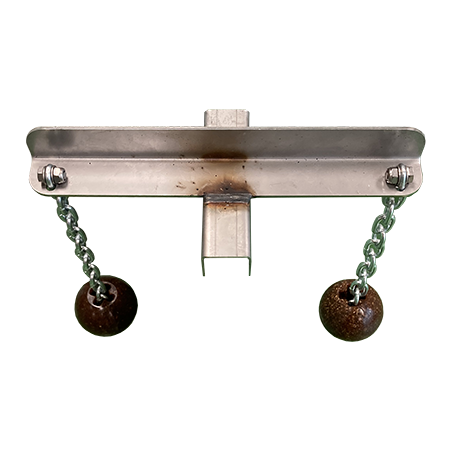Rapeseed meal is a sustainable feed ingredient that can be used as an alternative to imported soybean meal in European pig production. Moreover, rapeseed meal contains a higher amount of dietary fiber, which acts as a substrate for gut microbiota in the host and may affect the host favorably, contributing to maintenance of gut health and enhancement of general well-being. The gut microbiota plays an important role on pig physiology and health but the impact on microbiota of using rapeseed in diets is still not well known. Therefore, the aim of the present study was to assess the effects of rapeseed meal on the gut microbiome composition of growing-finishing pigs by performing both 16S rRNA gene sequencing and culturing of specific bacterial groups. For that purpose, 84 purebred Norwegian Landrace pigs with an average BW of 25 kg were divided into two groups and fed for approximately three months with either a control diet containing soybean meal (CON) or a high-fiber experimental diet where 20% rapeseed meal (RSF) was included as an alternative to soybean meal in CON.
As a result, the microbiota diversity and composition were similar between the dietary treatments; however, relative abundance of a variety of bacterial groups and imputed functions of microbiome in the ileum and large intestine were altered when the pigs were fed with a rapeseed-based diet. The immune-inducing bacterial group Mucispirillum and anti-inflammatory stimulating bacteria Lachnospira were more abundant in the ileum and large intestine of the RSF group, respectively. Moreover, there was a higher abundance of major amino acid fermenters and amylolytic bacteria in the CON group and a high abundance of putative short chain fatty acid producers in RSF group. In comparison with the CON group, the gut microbiome of RSF group possessed an enhanced potential for carbohydrate and energy metabolism and a reduced potential for bacterial pathogenicity-related pathways.

It could be concluded that piglets fed with RSF showed a favorable effect on their gut microbiome, indicative of a potential protection of pigs from infections and improved immunological homeostasis via modulation of gut microbiome functions.
Umu ÖCO, Mydland LT, Øverland M, Press CM, Sørum H. Rapeseed-based diet modulates the imputed functions of gut microbiome in growing-finishing pigs. Scientific Reports. 2020; 10(1): 1-12. https://doi.org/10.1038/s41598-020-66364-4






